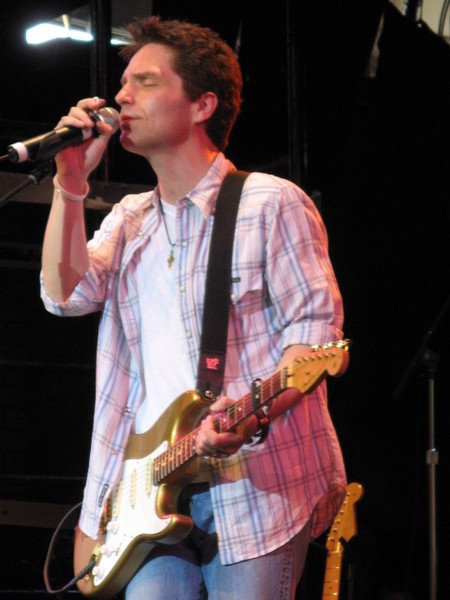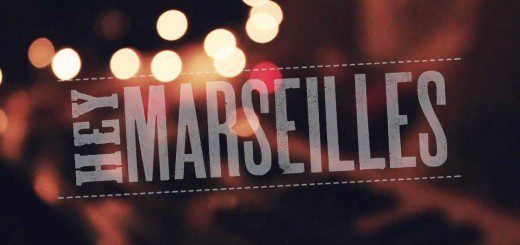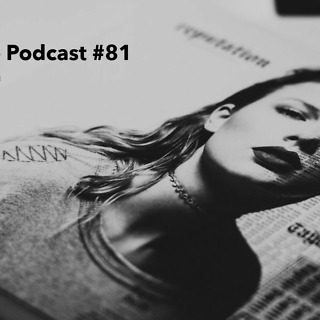Dance With His Father


In 2004, Richard Marx won a Grammy award for Song of the Year for his collaboration with Luther Vandross on “Dance With My Father,” which would be Vandross’ last Top 40 hit before his death. While Richard did not play the song as part of his performance with the Toledo Symphony Orchestra at the Stranahan Theater in Toledo last night (January 23, 2010), in many ways this performance seemed to offer Marx an opportunity to remember his father, Dick Marx, who passed away in 1997.
The show started with the orchestra playing a set of eight Elvis Presley tunes, arranged wonderfully into six compositions that made such classics as “Can’t Help Falling in Love” and “Love MeTender” sound like they could have scored MGM films from the 1950s. As conductor Steven Byess noted, the choice of Elvis for the opening set served well as a prelude for the main performance, as Richard Marx has claimed Elvis to have been a major influence on his own musical work.
After an intermission, the orchestra warmed the audience up, leading into Marx and his band, which included Marx’s friend and sometime collaborator Matt Scannell along with other members of Scannell’s band Vertical Horizon, taking the stage. The set featuring both Marx’s band and the orchestra included a number of Marx’s most famous hits along with a couple of songs from Marx’s recent work and a song penned and sung by Scannell.
The opening string of four songs featuring both Marx and the orchestra, which were a string of rockers that included “Endless Summer Nights” and “Angelia,” made me a little concerned about what I was about to experience, as the band seemed to drown out the orchestra both musically and physically. It felt a bit like a rock concert that happened to have some probably uncomfortable orchestra folks behind it, not the collaboration that I had hoped for. This would happen once again later in the set, during a two-song section featuring “Take This Heart” and what is probably Marx’s best and most intricately written tune–“Should’ve Known Better”–during which the orchestra did not play.  Otherwise, though, the show got a lot better after that opening sequence, as many of the other numbers featured a much fuller collaboration between the band and the orchestra, particularly during performances like a cover of the Roberta Flack classic “The First Time Ever I Saw Your Face,” a rendition of Marx’s well-known hit “Hazard,”  and a pulling out of the closet of the little-known but well-written song “Your World,” which Marx wrote after the birth of his first son and included on his Rush Street album. The collaboration between band and orchestra seemed to climax well (as it should have) in the last two songs of the three-song encore. First, as the orchestra led the way into Marx’s biggest hit–“Right Here Waiting”–Marx held his hands against his heart as if hearing the tune played by a live orchestra was a dream come true. Then, the collaboration blew the audience away with a rendition of Marx’s first hit–“Don’t Mean Nothing”–featuring a profound brass arrangement for the orchestra that illustrated just how effective the collaboration between band and orchestra could be on an uptempo, rocking tune.
Beyond that, three other moments during the show seemed particularly effective in highlighting the band-orchestra collaboration, all of which connected back to Marx’s father:
The performance of “Through My Veins”–a tribute to Marx’s father that appears on his latest album, Emotional Remains–was terrifically arranged to highlight both band and orchestra.
The performance of the 1990 hit “Children of Night”–a song, like “Your World,” that Marx admitted he has not played in concert in awhile and that features Marx’s father in its video–also brought out the best of both band and orchestra, particularly in the climax at the end of the song that offers a powerful brass line above a wall of sound.
And finally, in what I’d argue was the most poignant moment of the show, Marx and Scannell on acoustic guitars came together with the orchestra to render the original arrangement of Marx’s mid-1990s hit “Now and Forever.” The piece was made poignant by the context behind it. As Marx explained, he approached his father with this acoustic guitar line for the song and asked his father to arrange the piece from there. His father’s arrangement was “note for note” what we heard in this performance. As Marx introduced the piece, his swell of pride was noticeable as he spoke of his father, who began as a jazz pianast and arranger in Chicago but went on to write music in Hollywood, most notably as a jingle writer. Indeed, Marx quickly sang the “two scoops” Raisin Bran jingle and the “Ask any mermaid …” Chicken of the Sea jingle for the audience, ending the last with a beaming smile as he declared, “My dad wrote that!”
That pride seemed emblematic of the entire night. What better way for Richard Marx, the rock/lite rock musician and pop song writer, to pay homage to his father than to perform with a symphony orchestra? Marx started off by saying that he and the band were scared “shmmmphless” about playing with an orchestra, but, in the end, Marx, Scannell, and the band held their own in a fitting tribute to Marx’s music, his father, and his musical heritage and influences.
I sometimes find myself mocked by “serious” rock music connoisseurs for how much I like Richard Marx. While I understand that on the surface he might seem like just bubble-gum pop fare from the late 1980s and early 1990s, the thing that has drawn me to Richard Marx for more than two decades is the songwriting. Marx has dedicated himself throughout his career–a career that has taken him from hard rock to R&B to country and now to the orchestra–to writing well-crafted songs, which is surely a consequence of his father’s influence. Marx has also been blessed with the goods as a singer. I saw him perform in October 1989 and then didn’t see him live again until a show in Hershey, Pennsylvania, this past May (which was the site for the picture above), followed by this performance in Toledo. In 1989, I went home amazed at how much his voice sounded as crisp and clear as the album. Twenty years later, I can still say the same thing. At 46, the man can still belt it out with the best of them. Given that, a chance to see Marx perform is well worth the ticket, and usually his shows are very reasonable, especially given today’s concert market. Hopefully, he’ll do more performances like his show with the Toledo Symphony Orchestra last night. If that is the case, he should work a bit more on the band-orchestra balance to ensure that the band doesn’t overpower the orchestra when they decide to rock out. Toning down the volume of the band a little, toning down the rock concert posing by the band a bit, and working on the arrangements to bring out the orchestra more fully would seem to be the recipe for perfecting this kind of show for Marx. Yet, even given that concern, I left the Stranahan Theater feeling quite, if you’ll pardon the pun, satisfied.




